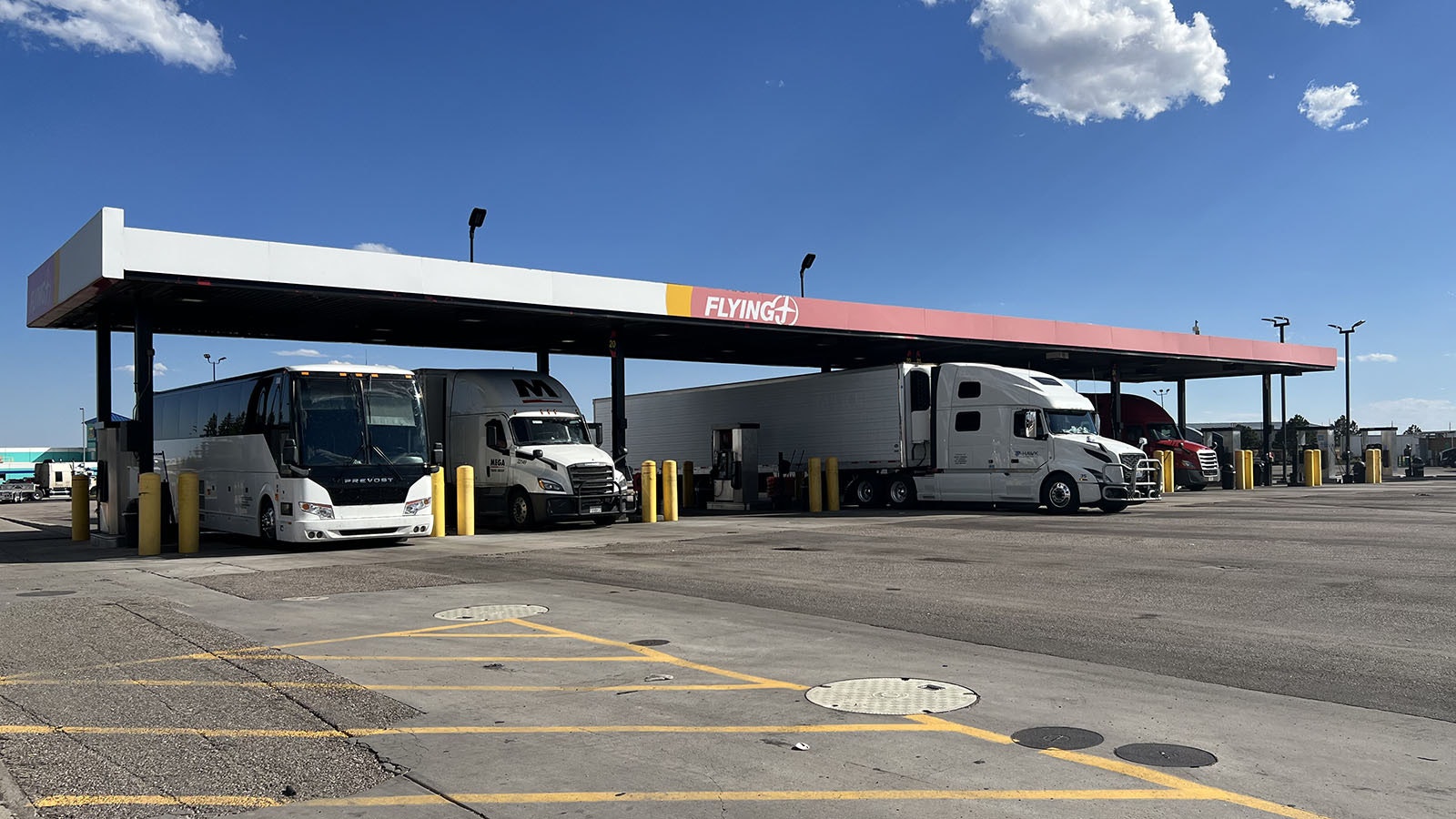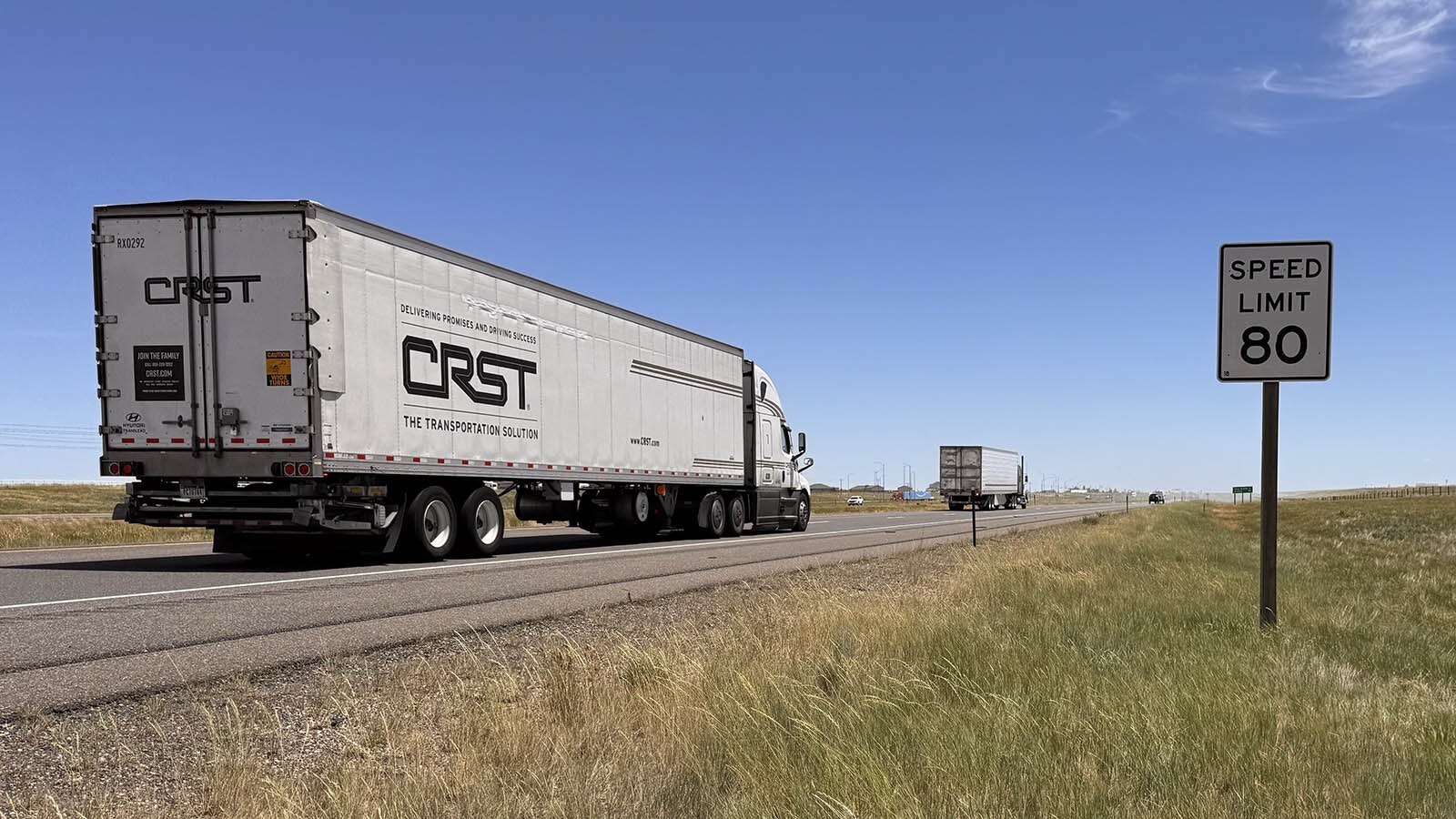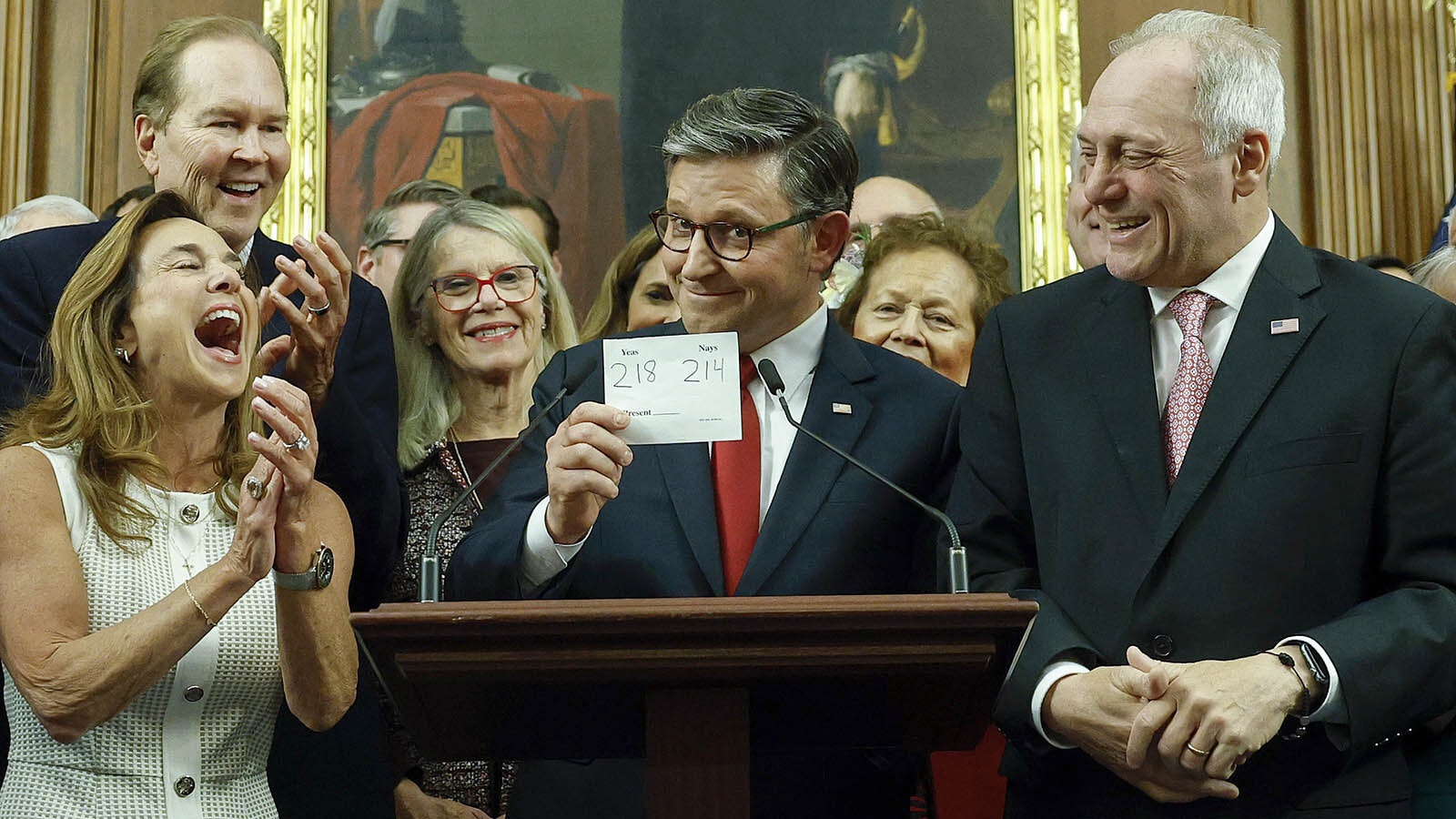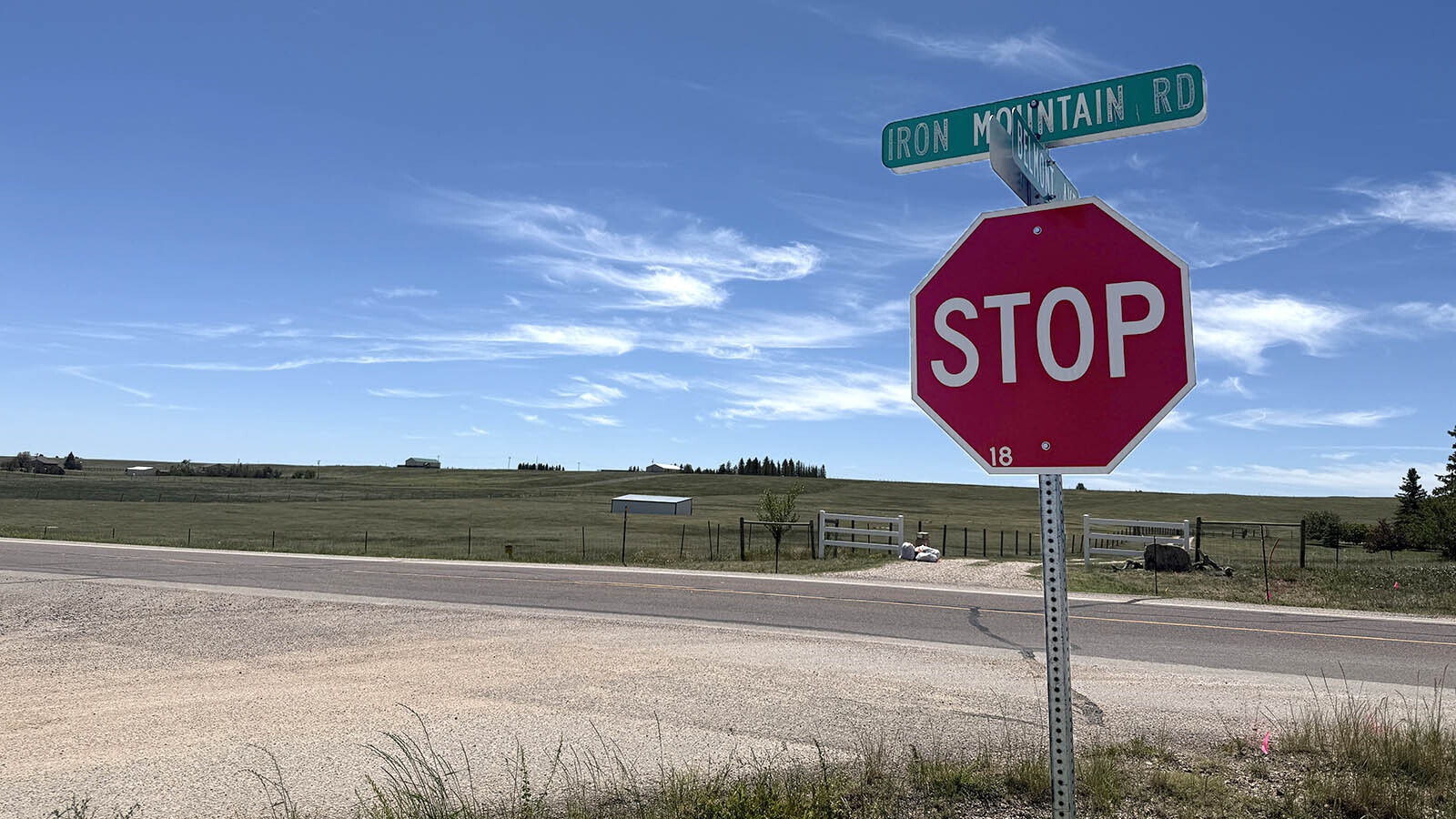A Wyoming legislative committee is banking on the hopes that giving Wyoming residents a break on vehicle registration fees will make up for a proposed tax hike on diesel fuel.
The Legislature’s Joint Transportation, Highways and Military Affairs Committee discussed a bill proposal on Thursday that would increase the diesel fuel tax in Wyoming by 5 cents and gasoline tax by 2 cents. In return, vehicle registration fees would be lowered.
The goal of the exchange would be to eliminate the state’s portion of registration fees on residents in an amount equal to revenue generated by the tax increases. This would amount to a $90 reduction in fees for diesel vehicles and a $30 decrease for gasoline vehicles.
Supporters of the bill say the idea is for out-of-state drivers to bear the burden of the fuel tax increase.
State Sen. John Kolb, R-Rock Springs, spoke in favor of the tax trade-off concept.
“It doesn’t grow government,” he said. “Yet … it will increase revenue to the state from out-of-state people.”
Kolb suggested the 5-cent increase on diesel alone would create $10 million in additional revenue for the Wyoming Department of Transportation.
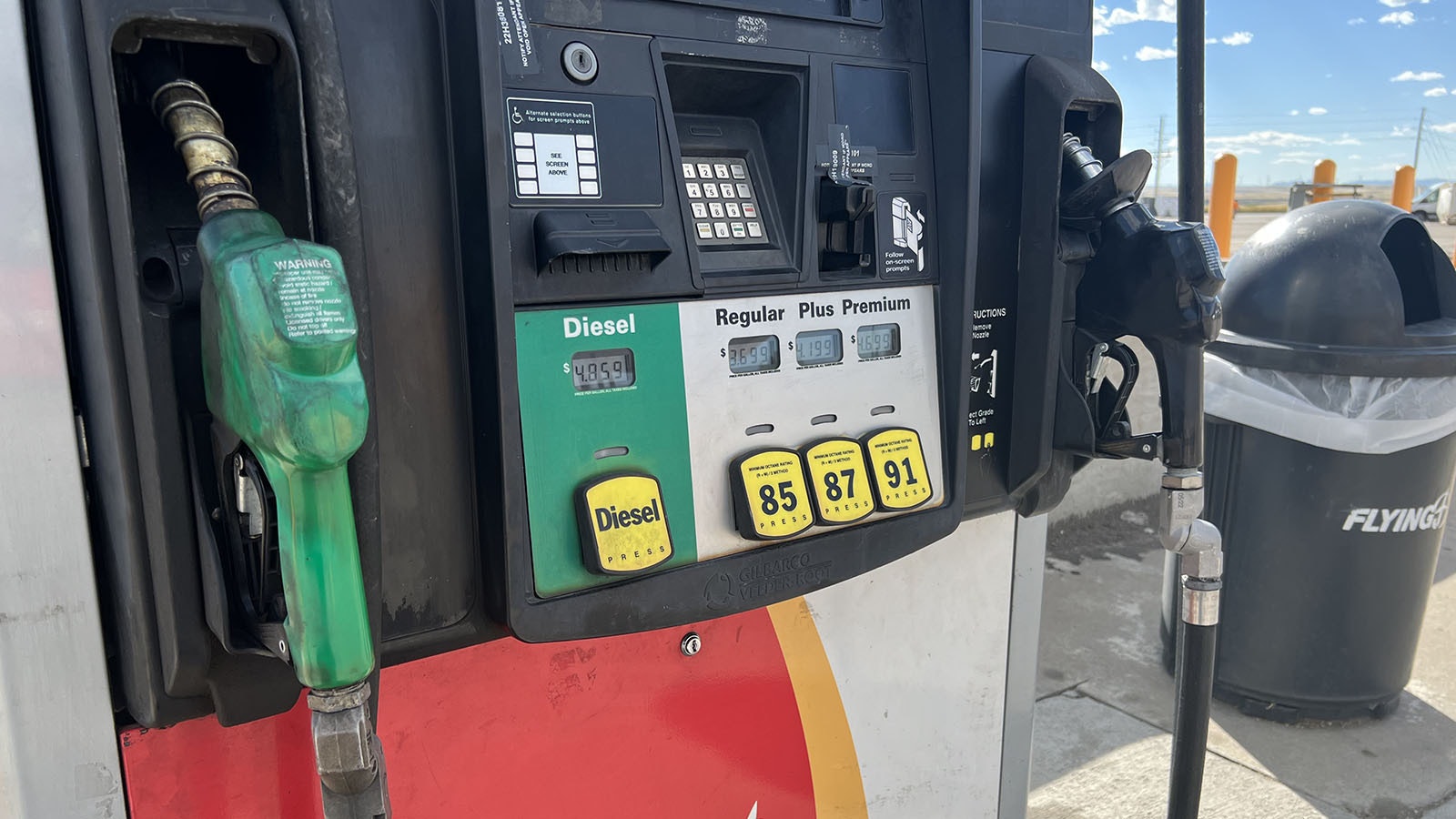
Why Raise Taxes?
Due to rising inflation and administration costs, WYDOT is recommending the Wyoming Legislature consider increasing the state’s fuel taxes, which are each now 24 cents. Under the proposed bill, that would increase to 29 cents for diesel and 26 cents for gasoline.
Under current tax rates, WYDOT anticipates collecting $82.5 million in revenue from the gasoline tax and $87 million from the diesel tax in 2024
WYDOT Director Darin Westby said inflation has made it significantly more difficult for his staff to adequately maintain the state’s roads, with some construction costs increasing as much as 50%.
“It’s important for us to be as lean as we can and efficient as we can because inflation is very impactful to our operations,” he said.
If the state were to increase each fuel tax by 1 cent, Westby estimates it would generate $6.8 million in additional revenue for the state, of which WYDOT would take $4.5 million.
Based on traffic counts, WYDOT estimates that although Wyoming residents pay 85% of the gas tax collected, they only pay 38% of the diesel tax.
Wyoming’s fuel tax rates were increased by 10 cents in 2013, but gas and diesel fuel tax collections for the Wyoming Highway Fund have remained roughly flat since 2014. This fund is used for road construction and maintenance, enforcement of traffic laws and administration of all these activities.
“Really, the revenues aren’t keeping up with our buying power,” Westby said.
Wyoming has the second lowest fuel tax rates in the region; only Colorado’s are lower.
A study done in 2020 found that WYDOT was running on a $354 million deficit per year based on its organizational needs.
WYDOT received a $100 million increase in federal money through the Infrastructure Investment and Jobs Act passed last year. But even with that influx, Dennis Byrne, chief financial officer for WYDOT, said the department now runs a $400 million annual deficit.
“The inflation is very impactful, as everyone knows,” he said.
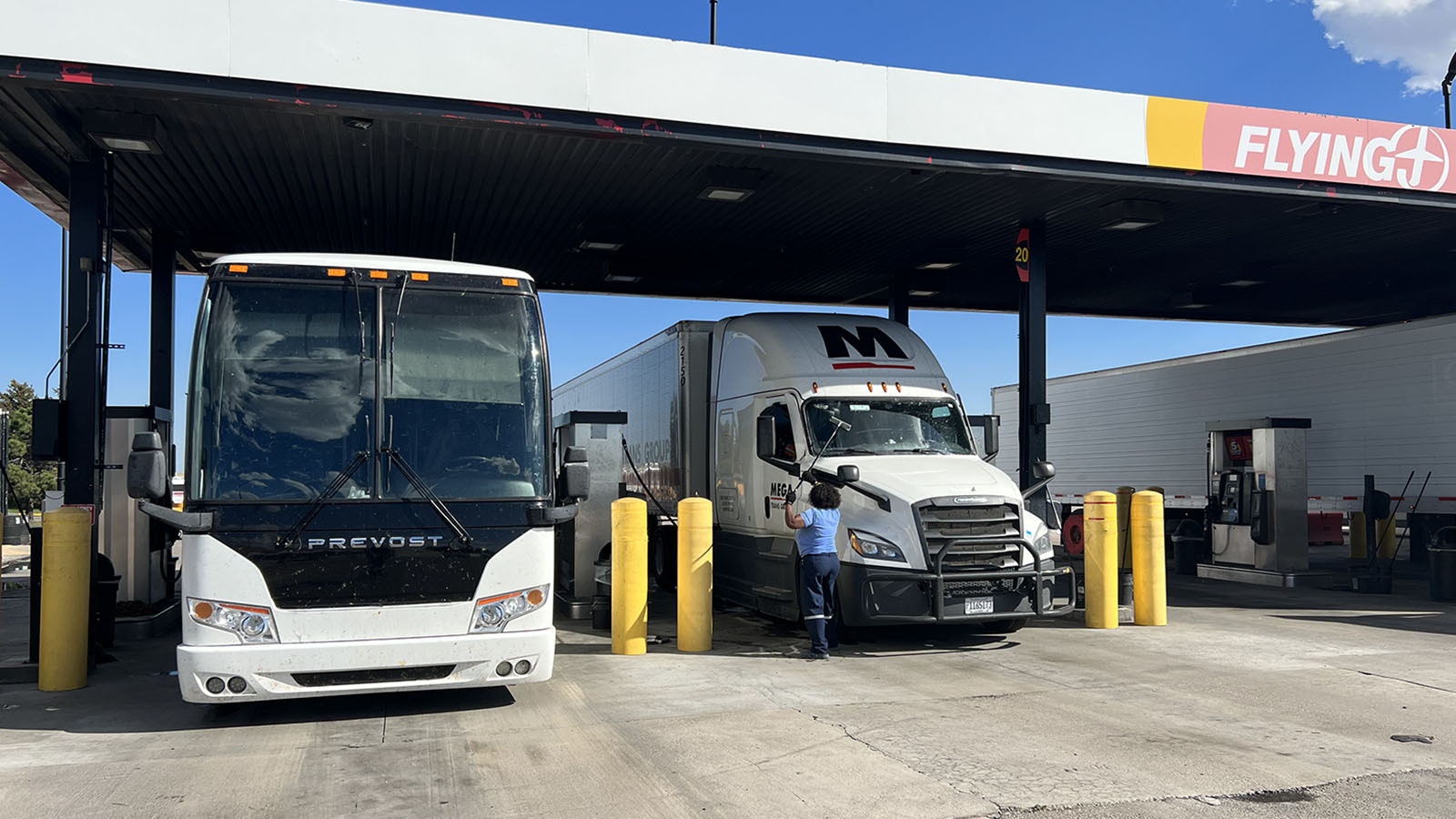
Will It Solve All The Problems?
Byrne said the deficit results in longer road closure delays and more untreated potholes, problems that are amplified by the department’s shortage of around 300 employees.
“It comes down to a time issue,” Westby said. “We have the equipment sitting there or it’s being purchased, we don’t have the manpower to get it done.”
Rep. Scott Smith, R-Lingle, said he’s received many complaints from farmers who say they can’t safely merge onto highways because WYDOT has not kept up with mowing median areas and land bordering roads.
Hot Springs County Commissioner Tom Ryan, who also owns a trucking company, said his business supports the tax increase as long as it helps WYDOT’s revenues. He said many of the road closures last winter had a significant impact on his business, but expressed doubt that an increased fuel tax would have changed these closures.
Rock Springs Republican representative Cody Wylie said that’s part of the reason he opposes the tax hike.
Westby admitted increasing the fuel tax alone would not solve all of his department’s problems and that this form of revenue generation is becoming less and less profitable as electric vehicles become more popular around the nation.
“We have to constantly looking into other ways to shore up that leg of revenue to ensure that we can be successful with our mission,” he said.
Wylie brought up the idea of bidding out some WYDOT duties to private contractors.
“That way you could limit some overhead, maybe not invest in so much new equipment,” he said.
Westby said this and many other “out-of-the-box” ideas are all under consideration.
Opposition And Inflation
Rep. Ken Pendergraft, R-Sheridan, was one of the most vocal skeptics of the fuel tax and called the proposal “unconscionable” because of the rampant inflation impacting people.
“I just want to point out that those who are paying this tax are affected by the same inflation we’re affected by here,” Pendergraft said. “When you look at an agency or you look at a business, either one, you have to look at both sides of the equation, how much money do we got coming in? What assets do we have to do that?”
Smith offered a similar sentiment, questioning Byrne about what the per-person cost would be for the diesel tax and whether this would contribute to inflation.
“The prices of everything across the state, I feel, would increase greatly,” Smith said.
Pendergraft suggested taking a reverse course of action and reducing the current diesel tax in the state to help with inflation.
“From a businessman’s perspective, from a homeowner’s perspective, we’re facing unprecedented — at least the last 40 years — inflation,” he said.
Sen. Brian Boner, R-Douglas, co-chair of the Transportation Committee, described the argument that the tax increases would negatively affect Wyoming residents as inaccurate and unprofessional, as he believes they will have a net-neutral effect on residents thanks to the cut in registration fees.
Byrne said gas taxes usually don’t have much of a direct impact on the base cost of gas at the pumps as the tax is put on the overall cost of fuel.
He added that the average U.S. state receives 69% of its roads funding from their state government and 31% from the federal government. In Wyoming, that statistic is reversed, where WYDOT only receives 28% of its funding from the state.
“Wyoming’s relying heavily on federal dollars and probably not investing as much state money as the national average,” Byrne said.
At a committee meeting in May, Pendergraft suggested the idea of performing more cross-training for WYDOT employees to solve some of the vacancy woes. On Thursday, he questioned Westby when was the last time his department received an efficiency audit.
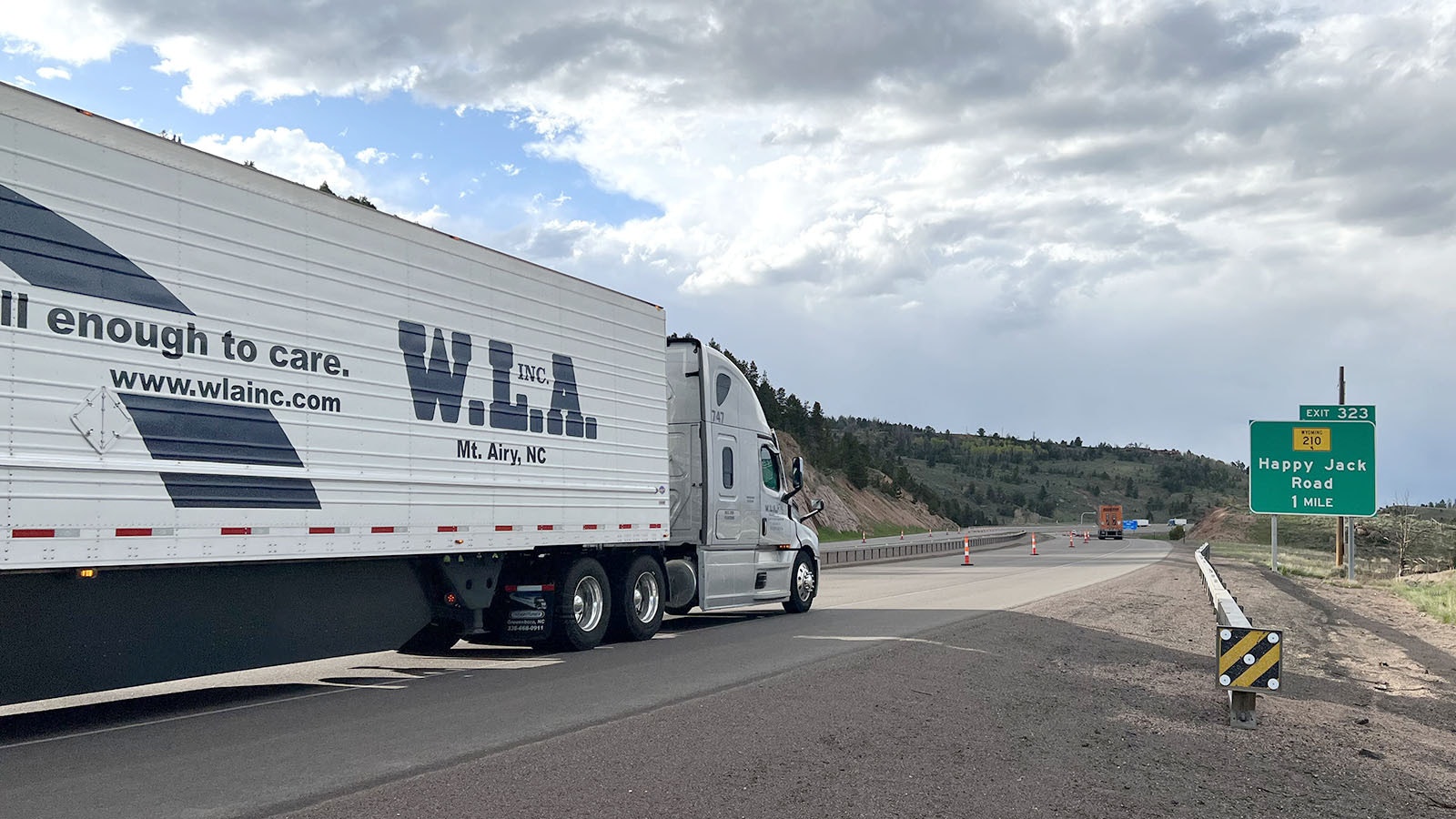
Hike For You, Hike For Me
Sheila Foertsch, President of the Wyoming Trucking Association, said her group only supports a fuel tax increase if gas and diesel are taxed at the same level.
“We feel like there’s a built-in differential with diesel just based on the number of gallons a commercial vehicle uses versus the number of gallons a passenger vehicle (uses) to go the same number of miles,” she said.
Boner proposed reducing the registration fees for Wyoming residents to ensure that the diesel tax has a neutral effect on locals and to “target out-of-state users that are not really paying their fair share.” He also said he’s fine with a 2-cent increase in gas fuel tax and 5 cents for diesel.
“This is not a tax increase on Wyoming residents, this is attempting to capture the user fee from out-of-state vehicles,” he said.
In an earlier version of a related bill, Boner suggested an amendment that would have limited the tax hike to gas stations within a half mile or less of Interstate 80 and a specific account within the Highway Fund for I-80.
Foertsch criticized this aspect as creating possible Commerce Clause issues for specifically targeting out-of-state drivers.
Rebate Consideration
The committee also considered a related bill that instead of the removal of registration fees, would authorize Wyoming residents to seek a refund on their increased fuel taxes through a rebate on either the cost of registration on their vehicles or the license tax, whichever is less.
Wayne Hassinger, Fuel Tax Administration Program manager for WYDOT, said the law could result in as many as 80,000 refund requests per year based on the number of registered diesel vehicles in the state. To facilitate these rebates, Hassinger said the department would normally have to add as many as six employees, but a stipulation in the bill draft allowing the administration to deduct 2% of tax revenues for administration costs would cover these new salaries.
Kolb questioned why these duties couldn’t be performed by a computer or an outsourced company. Hassinger said they are open to contracting a private company to do these duties but at least initially, human verification would be needed to inspect the receipts sent to WYDOT.
Byrne said even if every eligible person in the state took advantage of the rebate program, the state would still receive $1.6 million in additional revenue per penny increase in the diesel tax.
Kolb also suggested eliminating all registration fees in Wyoming. Westby said this would have a significant impact on local counties and governments that depend on that revenue.
Sublette County Treasurer Emily Paravicini backed up Westby’s sentiment. She said an $80,000 new truck costs about $1,530 for a new registration, of which $1,440 goes to the county. She estimated the same truck would have a registration fee of $250 after seven years when valued at $35,000, $157 of which goes to the county.
Paravicini said that the county’s portion of registration fees are distributed throughout the community and are not limited to local government administration.
Rep. Landon Brown, R-Cheyenne, co-chair of the Joint Transportation Committee, proposed a percentage-based sales tax that would be charged on fuel purchases.
“That way it kind of keeps up with the inflationary adjustments,” he said.
Westby said his department has considered this option and would be open to it. Although he said they haven’t performed any recent studies on this matter, WYDOT has determined this form of taxation would stay more consistent with inflation.
Leo Wolfson can be reached at leo@cowboystatedaily.com.

